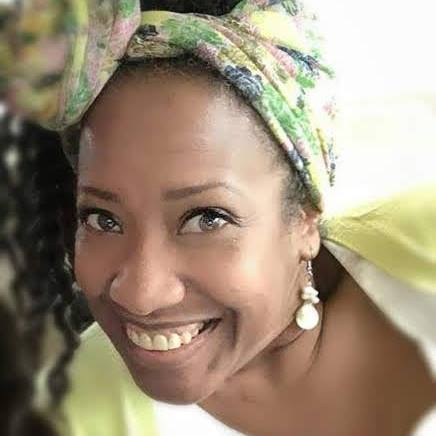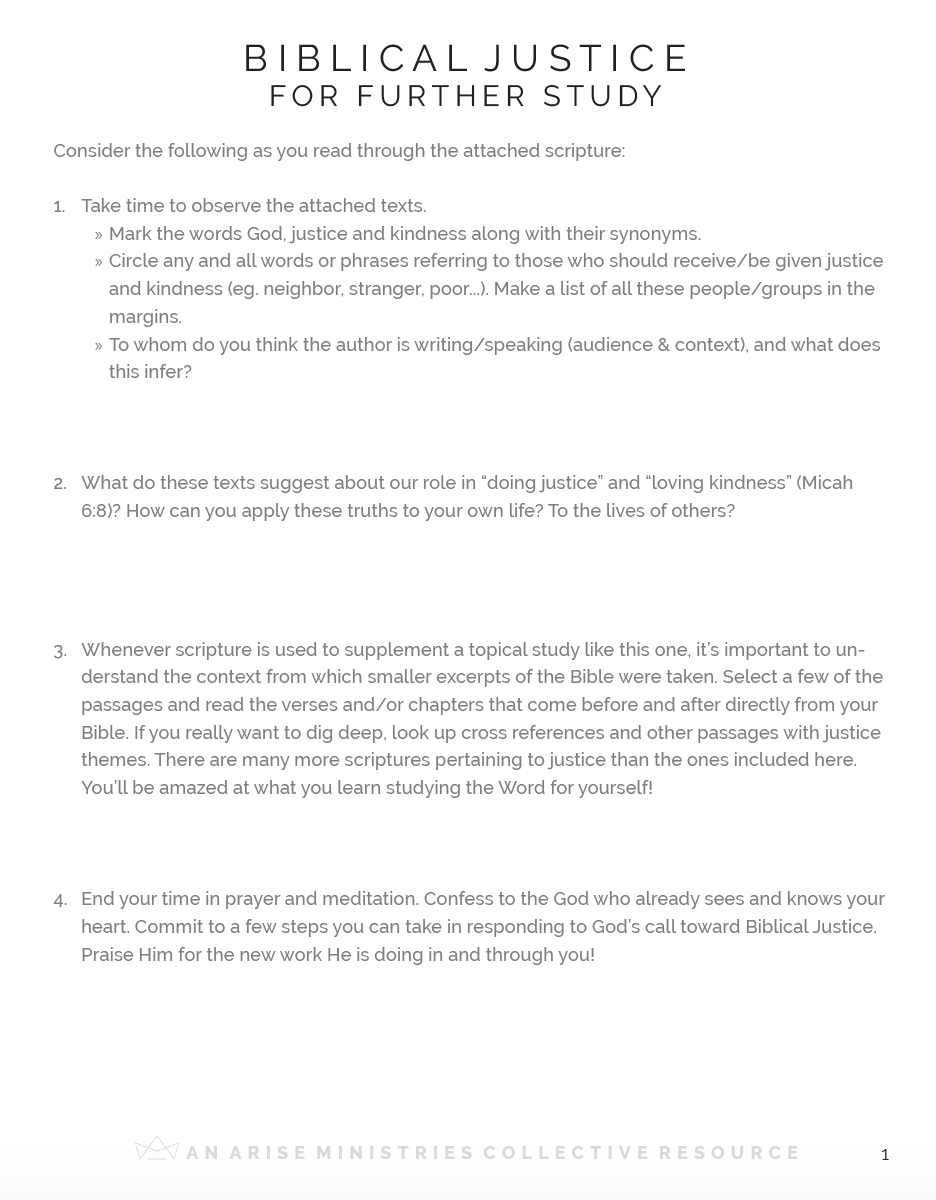What is white privilege and why do some white people struggle with the idea? Does saying and believing black lives matter mean you’re supporting or advocating for the BLM foundation or are anti-police? How can we engage in healthy conversation about racism and racial discrimination, and what are some steps we can take toward change and reconciliation?
In this episode of the Arise Ministries Collective Podcast, guest Vickie Hunter joins Lisa DaSilva to work through a few of the heavy topics surrounding race in America. We hope you’ll take time to quiet your heart, join in their conversation, and be part of gospel-centered healing.
Scripture References
Micah 6:8
“He has told you, O man, what is good;
and what does the Lord require of you
but to do justice, and to love kindness,
and to walk humbly with your God?”
Colossians 2:8
“See to it that no one takes you captive by philosophy and empty deceit, according to human tradition, according to the elemental spirits of the world, and not according to Christ.”
Luke 10:47
“And he answered, “You shall love the Lord your God with all your heart and with all your soul and with all your strength and with all your mind, and your neighbor as yourself.”
Psalm 139:23-24
“Search me, O God, and know my heart!
Try me and know my thoughts!
And see if there be any grievous way in me,
and lead me in the way everlasting!”
Psalm 19:14
“Let the words of my mouth and the meditation of my heart
be acceptable in your sight,
O Lord, my rock and my redeemer.”
Genesis 1:27
“So God created man in his own image,
in the image of God he created him;
male and female he created them.”
Galatians 3:28
“There is neither Jew nor Greek, there is neither slave nor free, there is no male and female, for you are all one in Christ Jesus.”
Noteworthy Quotes
“White privilege is a built in advantage because of the color of your skin… It also means you’re exempt from certain disadvantages.”
“When we all win, we all win.”
Concerning giving up privilege: “Think about the gospel itself – It is such a paradox. How do we gain our life? We have to lose it. To truly live, we have to die. To really be strong in the Lord, we have to boast about our weakness… You think you’re going to be losing something or give up something, and you’re really not.”
Concerning Black Lives Matter vs. All Lives Matter: “You love your children, but if one falls and skins his knee, that’s the one you’re running to – To tend to them at that moment. It doesn’t mean you don’t love your other children. It just means that one is hurting at that moment and needs some help. We’re crying out that we need help.”
“If we have a friend, or a brother or a sister in Christ and they’re hurting, there are certain ways to respond. By denying their pain, ignoring their pain, or saying, ‘Well, I don’t feel pain,” doesn’t mean that they are not in pain.”
“God knows your heart more than you know your own heart.”
“When we love the way that we should, we all win.”
“I don’t know the person or people who founded the BLM organization. I do know that the saying Blacks lives matter is a Christian worldview though. Christians are not borrowing this slogan from the world. The world borrowed this truth from the Christian worldview.” – Preston Perry via Twitter
“Every man shows himself to be a skillful teacher of justice for his own advantage.” – John Calvin
Next Steps
- Pray: Ask the Lord to reveal areas of blindness and to uncover biases. Take time to process with an open heart and mind.
- Study Scripture: Use this resource as a launching point to understand justice and kindness from God’s perspective. The Bible is packed with stories about God’s response to justice and His expectation of ours.
- Investigate: Read and listen to a variety of perspectives concerning history, systemic racism, and the human experience. Talk to your black friends and be open to genuinely learning from their responses. Consider reading some of the books in our previously published article about justice and empathy.
- Vote: Research candidates and platforms on your ballot. Judges, local constituents, city council members, and many others play a big role in influencing policy and change. Know who you’re voting for and what they stand for.
- Talk About It: Regularly talk about race, biases, assumptions, injustice, and current events in your homes and with your children.
- Arise: Ask, “How can I affect and influence systemic change?” and move into action. This may mean writing letters, signing petitions, participating in a peaceful protest, and supporting organizations that align with your Biblical worldview and work toward racial justice. The & Campaign is a great place to start.
 About Our Guest: Vickie Hunter is a Jesus-loving empty nester and mama to one adult son. She has lived on Long Island, NY her entire life but loves to travel. Her last major trip was to Israel where she had the amazing opportunity to walk in the footsteps of Jesus. Vickie has attended Island Christian Church for the past 25 years and has served as their Office Manager for the last 15. She is a mentor to many young women in her church and community who affectionately refer to her as “Auntie.”
About Our Guest: Vickie Hunter is a Jesus-loving empty nester and mama to one adult son. She has lived on Long Island, NY her entire life but loves to travel. Her last major trip was to Israel where she had the amazing opportunity to walk in the footsteps of Jesus. Vickie has attended Island Christian Church for the past 25 years and has served as their Office Manager for the last 15. She is a mentor to many young women in her church and community who affectionately refer to her as “Auntie.”
Podcast: Play in new window | Download
Subscribe: RSS


Leave a Reply